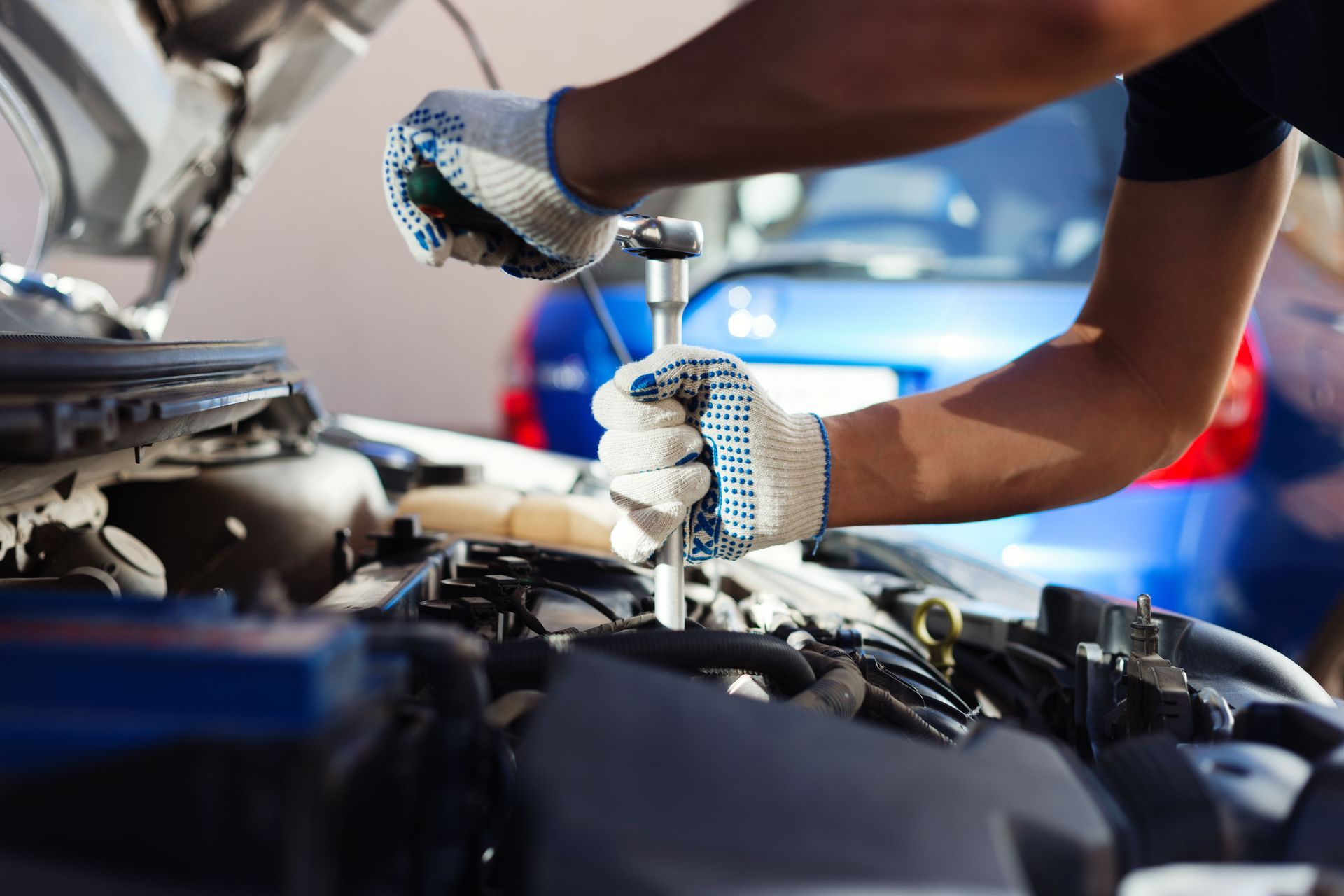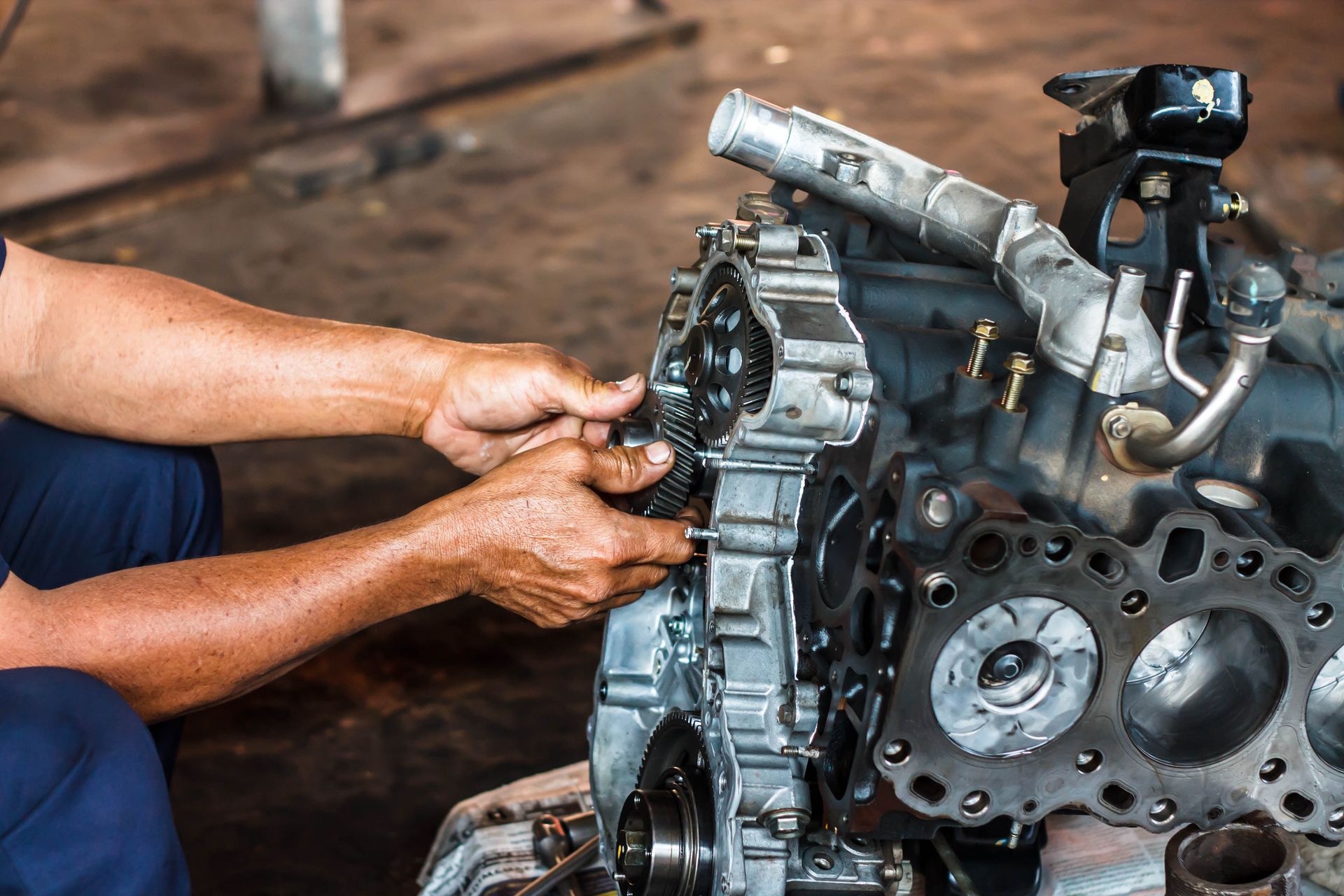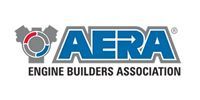What Are the Signs of Engine Trouble?
The engine is the heart of any vehicle, and its performance is crucial for ensuring smooth and safe travels. Recognizing signs of engine trouble early can prevent costly repairs and dangerous breakdowns. This article explores the most common indicators of engine issues and what they might mean. It's important for vehicle owners to stay informed about potential engine problems, as this knowledge can prolong the life of their vehicle through auto engine repair. In the following sections, we will discuss various signs that indicate engine trouble and what these signs typically signify.
Unusual Noises from the Engine
Knocking Sounds
Knocking sounds from the engine are often a sign of pre-ignition or detonation in the combustion chambers. This issue is commonly due to using fuel with too low an octane rating. Continuous knocking can lead to damage in engine components, such as the pistons and cylinder walls, if left unchecked. To resolve this problem, you should first try using a higher octane fuel, but persistent knocking requires professional diagnosis and potential auto engine repair. Ignoring knocking sounds can lead to severe engine problems, potentially resulting in costly repairs or even necessitating an engine replacement.
Squealing Noises
Squealing noises from the engine bay are often indicative of a problem with the serpentine belt. The belt may be loose, worn out, or misaligned, causing it to slip over the pulleys. This noise can also come from the brakes or the steering system if the issue is not related to the belt. Addressing a squealing problem might involve tightening, realigning, or replacing the belt, depending on its condition. Ignoring these sounds could lead to further complications like belt breakage, which can cause a sudden loss of power steering, overheating, or battery charging issues.
Rattling or Pinging Sounds
Rattling or pinging sounds can be worrying, as they often indicate loose or damaged parts within the engine. A common cause of rattling noises is low oil pressure, which might be due to insufficient oil or a failing oil pump. Pinging can also result from carbon deposits on the pistons, which can ignite the fuel-air mixture prematurely. If you notice these sounds, check your vehicle’s oil levels and get them topped up or changed if needed through auto engine repair. It's crucial to address these noises promptly to avoid further engine damage, which could escalate to significant repair costs.
Hissing Sounds
Hissing sounds can often indicate a vacuum leak, usually from a cracked or disconnected hose. This issue can lead to poor engine performance as the air-fuel mixture is disrupted. Alternatively, a hissing noise may come from leaking coolant, suggesting a possible radiator or heater hose issue. In any of these cases, it's important to locate and rectify the source of the leak quickly. Left unresolved, such issues could lead to engine overheating or performance issues, with potential consequences for your vehicle's longevity.
Loud Roaring or Banging
A loud roaring noise often means there's an issue with the exhaust system, such as a cracked manifold or a failing muffler. This problem can increase emissions and decrease efficiency, leading to a louder and rougher-running engine. Banging noises, especially during acceleration, may suggest an ignition problem that causes fuel to explode in the exhaust system. Addressing these noises may involve repairs or replacements within the exhaust system or ignition tune-ups. It's crucial to diagnose and fix these issues quickly to avoid expensive repairs or even engine replacement.
Engine Performance Issues
Lack of Power
A noticeable lack of power in your engine, especially while accelerating, can be frustrating and potentially dangerous without auto engine repair. This issue might be caused by a clogged fuel filter or problems with the air intake system. Additionally, malfunctioning spark plugs or fuel injectors might contribute to the power loss. To troubleshoot, start by inspecting the fuel and air filters along with the spark plugs, replacing them if necessary. A thorough diagnosis by a professional can avoid prolonged power issues, ensuring safe driving conditions and preventing future engine maintenance headaches.
Stalling Problems
Frequent stalling in a vehicle can indicate several underlying problems, often related to fuel delivery or air intake issues. It may stem from a failing fuel pump, which struggles to supply the engine with adequate fuel, or from dirty or malfunctioning fuel injectors. Another common cause is a faulty idle air control valve, which regulates engine idle speed. Diagnosing stalling problems typically requires professional auto engine repair as multiple systems might contribute to the issue. Addressing these matters promptly can prevent sudden and dangerous stalls, safeguarding both the engine and driver.
Engine Hesitation
Engine hesitation occurs when there is a lag in response after pressing the accelerator, often due to fuel and air mixture problems. Common causes include failing spark plugs, a clogged air or fuel filter, or a malfunctioning throttle position sensor. Hesitation can lead to jerky driving and inefficient performance, which are not only frustrating but also potentially risky. A regular maintenance schedule helps prevent these issues by ensuring all components are in optimal condition, promoting better vehicle performance. By addressing hesitation early, drivers can avoid the costly consequences of long-term engine damage.
Poor Fuel Efficiency
Sudden declines in fuel efficiency may signal engine issues, whether due to improper tire pressure, a clogged fuel filter, or a more severe engine malfunction. Engine misfires, fuel injector issues, or oxygen sensor malfunctions also affect how efficiently your engine consumes fuel. Maintaining optimal vehicle conditions through regular checks of filters, injectors, and sensors can prevent such efficiency losses. Poor fuel efficiency not only burdens your wallet with higher fuel costs, but it also suggests underlying engine troubles that could become more severe over time. Regular diagnostics can identify and rectify efficiency problems, helping to maintain vehicle performance and reduce long-term costs.
Problems Starting the Engine
Difficulties when starting the engine can arise from a variety of causes, including a weak battery, corroded connections, or a failing starter motor. The issue may also relate to a malfunction in the ignition system or a clogged fuel filter that inhibits sufficient fuel flow. If the engine cranks slowly or not at all, it's important to test the battery and examine electrical connections. Prolonged starting issues require professional evaluation to prevent a potential breakdown situation, which could result in costly roadside assistance and possibly more extensive auto engine repair or engine rebuilding. According to the EPA, approximately 350,000 heavy-duty engines are rebuilt annually, representing about 5% of the estimated 7.5 million heavy-duty trucks in operation. By addressing starting troubles early, you can maintain a reliable vehicle ready for journeys at any time.
Warning Lights and Indicators
Check Engine Light
The check engine light is one of the most recognizable indicators, but its activation can stem from numerous issues, from minor to severe. Common reasons include a faulty oxygen sensor, a loose gas cap, or a failing catalytic converter. While some causes might be trivial, others may demand immediate attention to avoid damaging the engine. Vehicle owners should not ignore this light, as doing so could lead to exacerbated issues and potentially costly repairs. A diagnostic test from a professional can quickly identify the specific problem, ensuring timely repairs and continued vehicle safety.
Understanding and identifying the signs of engine trouble early not only helps prevent costly repairs but also ensures the safety and reliability of your vehicle. Regular maintenance, prompt attention to unusual changes, and professional consultations can keep engine issues at bay, ensuring a smoother and safer driving experience. Vehicles in optimal condition perform better, consume less fuel, and offer peace of mind on the road. By staying vigilant and informed about potential engine troubles, you can extend your vehicle’s lifespan and maintain its efficiency. Always remember that timely intervention can save significant repair costs and preserve your vehicle’s operational health in the long run. Be sure to reach out to Advantage Engine Restoration for more information on our auto engine repair services!






Share On: